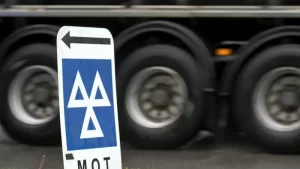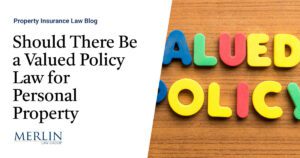Should There Be a Valued Policy Law for Personal Property?

A New York Times article written by Rukmini Callimachi, California Bill Would Force Insurers to Pay Full Coverage Without Requiring Itemization, is something many policyholders of the recent Los Angeles wildfires wished was the law right now. Many are having to go through the trauma of reliving the loss of each piece of their personal property because their insurance companies give them inventory sheets with many questions about the articles that have been completely consumed in the fire. The Times article stated:
California’s insurance commissioner joined with state legislators on Friday to propose a new law that would force insurers to pay homeowners 100 percent of the coverage for belongings inside destroyed homes, releasing them from the mentally taxing process of listing every object they lost — a requirement of many insurers, and one that consumer advocates say only compounds the trauma.
If passed, the legislation would make California the only state in the country requiring 100 percent insurance payouts without such itemization. Similar legislation in Oregon and Colorado following catastrophic fires in those states require insurers to pay 70 and 65 percent of the coverage limit, without an inventory, according to Emily Rogan, a senior program officer for United Policyholders, which supports the rights of consumers.
The bill applies only to homes that were destroyed in a disaster and calls on insurance companies to pay a homeowner’s total contents coverage without forcing them to provide an inventory, according to the bill’s sponsor, California Insurance Commissioner Ricardo Lara, and the bill’s author, State Senator Ben Allen.
The Press Release from Commissioner Lara noted the following about the proposed legislation:
Eliminate ‘The List’ Act (authored by Senator Ben Allen) This bill requires insurance companies to pay wildfire survivors 100 percent of their contents coverage without needing a detailed inventory list. It also grants consumers additional time—at least 180 days—to provide proof of loss to their insurance company following a declared state of emergency. Furthermore, the proposal aims to establish specific data collection authority to assist the Department in understanding long-term trends in risk management tools, technical data, and the integration of information related to climate-intensified risks that can significantly affect insurance availability.
Many insurance companies require policyholders to go back to their homes full of toxic ash and soot to spend weeks listing all the remnants of their destroyed personal property. Often, the insurers fail to tell policyholders how dangerous and unsafe it is to comb through the remains of a fire scene. Firefighters and scientists have learned how dangerous it is to remain in the post-fire residue since September 11. Most policyholders have no idea that by doing the insurance company’s adjustment work and completing those inventory forms on-site, they are also putting their health in jeopardy. The same concerns that firefighters have are also present for homeowners, renters, and business owners returning to their structures.
The truth is that most people give up making the inventory. Many California insurance companies offer to pay 80% of the replacement cost value of the personal property limit in exchange for the policyholder not having to prepare the inventory. I call this a form of “insurance breakage” noted in Insurance Breakage—Insurance Companies Profit When Policyholders Give Up:
‘Insurance breakage’ mirrors the concept of breakage in the retail sector. In retail, breakage refers to the revenue gained from unredeemed gift cards or prepaid services. Essentially, customers pay upfront for a service or product they never use, and the retailer benefits financially from this non-redemption.
Translating this concept to the insurance industry, “insurance breakage” can be understood as the financial gain an insurance company realizes through the underpayment or non-payment of legitimate first-party claims when policyholders stop trying to collect what is owed. This occurs when insurance companies employ various tactics that effectively reduce the amount they pay out on claims. These methods can include imposing stringent and often excessive documentation requirements on policyholders, employing complex and opaque claim processing procedures, delaying claims payments, or interpreting policy language in a way that is overly restrictive or even contrary to the policyholder’s reasonable expectations.
Such practices can lead to a situation where policyholders, faced with onerous and confusing claims processes, may either give up on pursuing their claim entirely or settle for a payment that is significantly less than what they are entitled to under their policy. This results in a financial benefit to the insurance company, akin to the unclaimed funds in the retail breakage scenario.
The insurance industry will undoubtedly be up in arms about this proposal the same way it was about valued policy laws being written 140 years ago. I appreciate that it will make personal property loss adjusting inexact. It may even promote the possibility of a greater moral hazard.
On the other hand, most insurers are making unearned premium profit on personal property all the time. If the vast majority of policyholders never receive the maximum policy limit after having all of their personal property wiped out and lost while insurers have pocketed those unearned premium profits, maybe the insurance industry should be made to finally Pay Up!
Thought For The Day
“Compassion is not weakness, and concern for the unfortunate is not socialism.”
Hubert H. Humphrey





